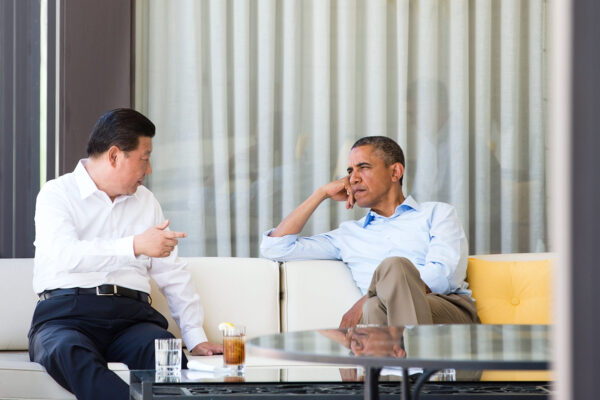
Visiting South Korea on Thursday, China’s president, Xi Jinping, appeared to distance himself from his country’s longtime communist ally North Korea, telling his South Korean counterpart, Park Geun-hye, that China took an “impartial” view to situation on the peninsula.
According to Chinese state media, Xi said, “All parties concerned should jointly and properly manage and control the situation, avoid causing tension, prevent the situation from losing control and creating no more stirs.”
He added that China believes “all sides should be treated in a balanced way,” suggesting a shift away from Chinese support for the North Korean regime which just a day before Xi’s visit launched two rockets off its east coast in a show of force.
Xi’s visit was in itself remarkable as no Chinese president previously visited South Korea before coming to Pyongyang. He had met Park four time earlier since the two presidents took office last year, underlining the growing commercial relationship between their countries.
Xi has yet to visit North Korea while its ruler, Kim Jong-un, has yet to visit Beijing.
Trade between China and South Korea totaled $275 billion last year, forty times China’s trade with North Korea which relies on China for 80 percent of its fuel and half its food. China is now South Korea’s biggest trading partner while South Korea is China’s third largest.
China appears to have taken a more dispassionate view toward its internationally isolated neighbor since Xi succeeded Hu Jintao as general secretary of the ruling Communist Party in November 2012 and as president in March 2013. In February that year, China said it was “strongly dissatisfied” by a North Korean nuclear test. Three months later, China’s biggest state bank closed the account of North Korea’s main foreign exchange bank.
North Korea is believed to possess several nuclear devices but lacks a reliable intercontinental missile capability to deliver them. Missile tests have repeatedly failed.
China effectively props up the North Korean dictatorship — whose population lives on the brink of starvation after years of gross economic mismanagement — because it provides a buffer against South Korea and the nearly 30,000 American troops that are permanently stationed there. However, its erratic and oftentimes provocative behavior appears to have baffled China more than usual since Kim Jong-un took over as the country’s leader after his father, Kim Jong-il, died in late 2011. Increasingly, it does more to raise tension on the Korean Peninsula than it keeps China secure.
In its propaganda, North Korea has justified its recent actions, which have included missile tests and threats to strike American army basis in the Pacific, as a response to the United States’ strategic “pivot” to East Asia.
China also regards the burgeoning American presence in the region warily, fearing that the aim is to encircle it and contain its rise.
But North Korea’s threats only give the Americans more reason to strengthen their alliances with Japan and South Korea and deploy forces to the area, moves that China’s leaders — many of whom do not share their predecessors’ emotional attachment to an alliance that was forged in a war against the United States over half a century ago — might rightly interpret as detrimental to their own interests.
All the same, China is unlikely to undermine North Korea. Regime change in Pyongyang could herald the reunification of the peninsula on South Korean terms which would raise Chinese fears of encirclement.
